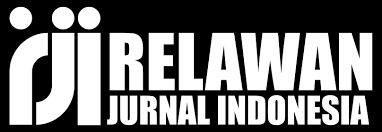STUDI KLAYAKAN BISNIS : ASPEK EKONOMI DAN SOSIAL (Studi Kasus: GO-JEK)
DOI:
https://doi.org/10.61722/jiem.v3i2.3835Keywords:
Economic and Social Aspects, Digitalization, Business FeasibilityAbstract
This study aims to analyze the business feasibility of GO-JEK as a pioneer of online transportation services in Indonesia, with a focus on socio-economic impacts, economic challenges, and government support. This study uses a qualitative method with a literature study approach, utilizing relevant academic literature published in the last 10 years. The results of the analysis show that GO-JEK has a significant positive impact on the national economy, such as job creation, increasing MSME income, and empowering certain groups. However, challenges such as partner income and competition with the traditional sector need to be addressed. Continued government support is key to the development of the GO-JEK business model to provide inclusive and sustainable socio-economic impacts.
References
Aisyah, S. (2020). Dampak Pandemi Covid-19 Bagi UMKM Serta Strategi E-Marketing UMKM di Indonesia. Journal of Chemical Information and Modeling, 9(2), 1–69. http://repository.uinsu.ac.id/10168/1/LAPORAN PENELITIAN - SITI AISYAH, M.M.pdf
Bahasoan, A. N., S Qamariah, N., Rahmat, A., Listiawati, N., & B, I. (2024). Transformasi Sosial dan Ekonomi: Dampak Go-Jek dan Grab di Indonesia. EKOMA : Jurnal Ekonomi, Manajemen, Akuntansi, 3(4), 1557–1569.
Damayanti, N. (2021). Strategi Bertahan Pengemudi Ojol di Masa Pandemi Covid-19 di Kota Makassar. Emik, 4(1), 70–83. https://doi.org/10.46918/emik.v4i1.853
Ermawati, S., & Lestari, P. (2022). Pengaruh Startup Sebagai Digitalisasi Bagi Ekonomi Kreatif di Indonesia. Transekonomika: Akuntansi, Bisnis Dan Keuangan, 2(5), 221–228. https://doi.org/10.55047/transekonomika.v2i5.186
Herman, H., & Naruliza, E. (2018). Pengaruh Strategi Sponsorship Pt.Gojek Indonesia Di Liga 1 Indonesia Terhadap Keputusan Pemesanan Go-Jek Di Kota Palembang. Jemasi: Jurnal Ekonomi Manajemen Dan Akuntansi, 14(2), 152–164. https://doi.org/10.35449/jemasi.v14i2.25
Iwen Suseno, Siti Heidi Karmela, F. Y. (2024). Kehidupan Ekonomi Driver Gojek di Kota Jambi. Istoria: Jurnal Prodi Pendidikan Sejarah Universitas Batanghari, 15(1), 37–48. http://istoria.unbari.ac.id/index.php/OJSISTORIA/article/download/203/146
Langging, H. Y., Handayani, A. T., & Anggorowati, V. D. A. (2020). Analisis Tingkat Kelayakan Layanan Transportasi Online Khususnya Go-Ride Di Kotamadya Yogyakarta. Equilib, 01(02), 99–106. https://journal.itny.ac.id/index.php/equilib/article/view/1934
Nara Weking, A., & Ndala, S. (2018). Analisis Implementasi Model Bisnis On Demand Service Mobile Platform Terhadap Tingkat Kepuasan Pelanggan Gojek Di Indonesia. Jurnal Informatika: Jurnal Pengembangan IT, 3(3), 367–370. https://doi.org/10.30591/jpit.v3i3.1021
Primawati, A. M. (2020). Dampak Go-Jek Terhadap Perekonomian Masyarakat Kota Kediri. Universitas Nusantara PGRI Kediri, 2507(February), 1–9. https://repository.unpkediri.ac.id/1748/3/RAMA_61201_16102020065_0722108505_0706108902_01_front_ref.pdf
Suryatama, F., Ayu, P. D., & Rohmah, H. (2023). FAKTOR PENGHAMBAT PELAYANAN PRIMA DRIVER GOJEK (Studi kasus di Komunitas Driver Gojek GePeng Ungaran Kabupaten Semarang). BISECER (Business Economic Entrepreneurship), 6(2), 177. https://doi.org/10.61689/bisecer.v6i2.455
Yunus, M. (2017). Go-Jek Sebagai Simbol Perubahan Sosial dan Ekonomi di Kota Tegal. Jurnal Ilmiah Pendidikan Ekonomi, 2(2). https://core.ac.uk/download/pdf/234023920.pdf
Downloads
Published
Issue
Section
License
Copyright (c) 2025 JURNAL ILMIAH EKONOMI DAN MANAJEMEN

This work is licensed under a Creative Commons Attribution-ShareAlike 4.0 International License.












